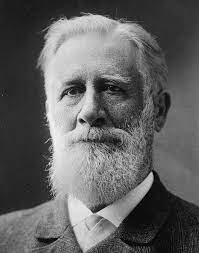Rethinking the Corporate Form Across the National and International Divide
Since it first started to become available in the 19th Century, a particular approach to legally structuring business has gradually come to dominate every scale of business activity, from small one-person businesses to large global ones. This legal structure is a particular category of corporation: one that is formed through an administrative process of registration; issues shares to investors; allocates voting power based on voting shares held; and limits investors’ liability for the corporation’s debts to the cost of their shares.
But while the global dominance of corporations that fit this category indicates a level of convergence in the legal structuring of business, there is still considerable diversity around how the corporation is and should be understood.
Unsurprisingly, many of its legal characteristics are subject to both scholarly and public debate. Limited liability, for example, has been both praised as a key generator of technological innovation and global economic growth, and condemned as giving a green light to social and environmental harm. The question of whether directors are legally required to manage corporations in the sole interest of shareholders is approached differently in different countries, as is the question of how much influence shareholders should have over management decision-making. There is also considerable variation in terms of who has power to take legal action against directors who breach their duties to a corporation. These and other variations within the dominant model are frequently debated.
However, these current debates regarding the characteristics of the corporate form typically take place in the expert register of corporate law. They are usually normative, and often a-historical, seldom engaging with the deeper roots of both disagreements around and understandings of the corporation. In our argument, disagreements over the corporation’s legal characteristics are not just ideological but reflect a long history of more profound contestation between different theoretical traditions around the corporate form.
Symptomatic of this is the way that when corporations appear in public law and non-legal contexts, such as international law or business studies, there is seldom an interrogation of the corporate form itself. Instead, the corporation is taken for granted as a self-evident entity, and little attention is paid to the way the corporation is being understood in any given context, and what difference it makes to pay attention to the different traditions of thinking about the corporation.
Our project will address these phenomena.
The premise of the project is that business corporations are significant actors on the global stage, as well as within different jurisdictional contexts. They are constant figures in all domains of legal activity, and in social, economic and political life. In all these domains, their existence is taken for granted. And yet far from being a clearly defined entity, they are legally ambiguous. Our intuition is that how they are understood radically changes what they can do, what they seek to achieve, and what they are held to be responsible for.
Our objective is to trace the different ways of understanding the corporation, explore and explain where those rival understandings came from, and show what’s at stake for the role, rights and responsibilities of the Business Corporation in following one tradition of thinking about the corporation and corporate form, rather than another.
We will produce a Reader which will provide an account of the most prominent conceptions of the corporation, and the social, economic, political and philosophical contexts in which they respectively emerged. We are interested in how they relate to, sprang from, and in turn, developed different theoretical and jurisprudential traditions, and how they have travelled through time and across jurisdictions. Our intuition is that whenever the corporation is taken for granted, it is underpinned by a particular, but implicit understanding of the corporation, and that much is at stake in the way the corporation is understood in any given context.
The book will offer key essays on each of the main theoretical approaches as well as a curatorial essay which offers a jurisprudential account of what it might mean to approach corporations from the perspective of rival traditions.
The book will also be a reader, selecting and presenting extracts from texts in which the corporation figures to explore and explain the implicit and explicit accounts of the corporation those texts carry, as well as to tease out what might be at stake. The texts will range from company law cases to international agreements to historical documents to cultural texts. The purpose is to offer a range of theoretical and conceptual tools to those who encounter the corporation in their respective legal and non-legal domains, to be able to choose a repertoire and register for understanding the corporation appropriate to their needs.



